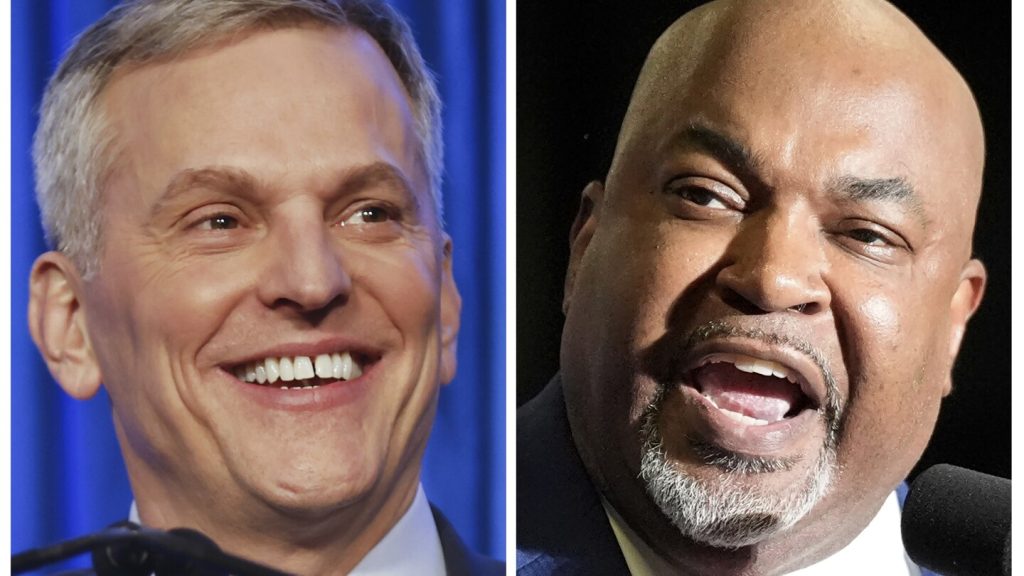North Carolina’s upcoming 2024 governor’s race is attracting attention as Lt. Gov. Mark Robinson, a Republican with strong conservative views, is set to face off against Democrat Josh Stein. Robinson has made controversial statements on topics such as abortion and LGBTQ rights, aligning himself with populist conservatism in the era of Donald Trump. The GOP is also running Michele Morrow, a conservative candidate for state superintendent of public instruction, who has been vocal about her views on liberal indoctrination in schools.
The nomination of Robinson and Morrow has raised concerns in the business community, with some fearing a repeat of the fallout from the controversial Bathroom Bill of 2016. This bill, signed by former Republican Governor Pat McCrory, led to widespread criticism and economic repercussions for the state. Critics worry that Robinson’s divisive views could impact the election and drive away moderate voters, potentially harming the state’s business climate.
Despite North Carolina’s history of split results between the governorship and presidential elections, there are questions about whether this trend will continue in the upcoming race. While outgoing Democratic Governor Roy Cooper won re-election in 2020 with a significant margin, the state has a strong Republican base. Some believe Robinson’s outspoken nature and Christian beliefs could attract new voters, while others argue that his nomination could also galvanize Democratic and swing voters in support of Stein.
The starkly different backgrounds of Robinson and Stein further highlight the contrast in this race. Robinson, a political newcomer who rose to prominence through a viral speech, presents himself as a champion of anti-establishment conservatism. In contrast, Stein, an Ivy League-educated lawyer and two-term attorney general, appeals to centrist voters with his experience in office. The race between these two candidates will test North Carolina’s political landscape and its willingness to embrace change.
As the campaign unfolds, the dynamics of the governor’s race will continue to evolve, with both candidates working to solidify their base of support and appeal to undecided voters. The outcome of this election could have far-reaching implications for the future of North Carolina’s political landscape, as it navigates the tension between its conservative roots and shifting demographics. Voters will have the opportunity to choose between two distinctly different visions for the state’s future, setting the stage for a potentially pivotal moment in North Carolina’s political history.















